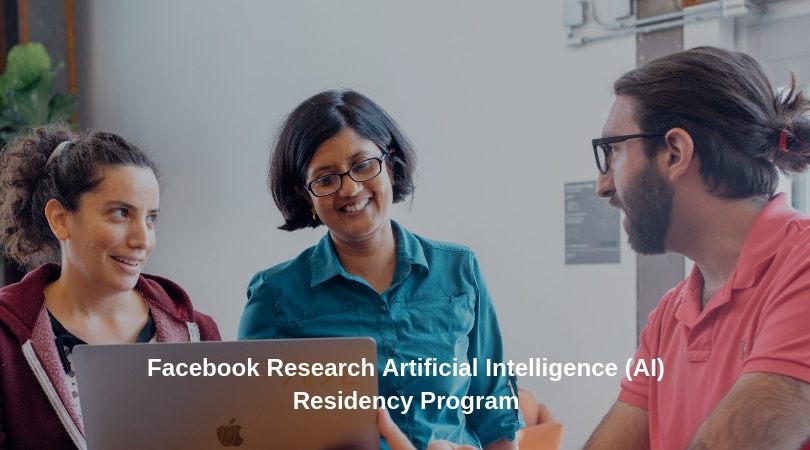Deadline: January 28, 2019
Applications are open for Facebook Research Artificial Intelligence (AI) Residency Program 2019. The Artificial Intelligence (AI) Residency Program is a one-year research training position designed to give you hands-on experience with machine learning research while working in Facebook AI groups.
The program will pair you with an AI Researcher and Engineer who will both guide your project. As a team, you will pick a research problem of mutual interest and then devise new deep learning techniques to solve it. We also encourage collaborations beyond the assigned mentors. The research will be communicated to the academic community by submitting papers to top academic venues (for example: NeurIPS, ICML, ICLR, CVPR, ICCV, ACL, EMNLP etc.), as well as open-source code releases.
The AI Residency experience is designed to prepare you for graduate programs in machine learning or to kickstart a career in the field. This is a full-time program that cannot be undertaken in conjunction with university study or a full-time job.
Accepted AI Residents will be based in Facebook Menlo Park and New York.
Responsibilities
- Learn how to perform research in deep learning and AI.
- Understand prior work and existing literature.
- Work with research mentor(s) to identify problem(s) of interest and develop novel AI techniques.
- Translate ideas into practical code (in frameworks such as PyTorch, Caffe 2).
- Write up research results in the form of an academic paper and submit to a top conference in the relevant area.
Eligibility
- They encourage applications from people who have a strong technical background and are passionate about AI research.
- Prior experience in machine learning is certainly a strength, but they seek people from a diverse range of backgrounds, including areas ostensibly unrelated to machine learning such as (but not limited to) math, physics, finance, economics, linguistics, computational social science, and bioinformatics.
Application
To learn more about the program and to apply, click the button below.
For more information, visit Facebook Research.

